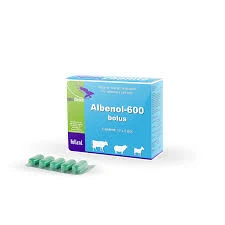- Afrikaans
- Albanian
- Amharic
- Arabic
- Armenian
- Azerbaijani
- Basque
- Belarusian
- Bengali
- Bosnian
- Bulgarian
- Catalan
- Cebuano
- Corsican
- Croatian
- Czech
- Danish
- Dutch
- English
- Esperanto
- Estonian
- Finnish
- French
- Frisian
- Galician
- Georgian
- German
- Greek
- Gujarati
- Haitian Creole
- hausa
- hawaiian
- Hebrew
- Hindi
- Miao
- Hungarian
- Icelandic
- igbo
- Indonesian
- irish
- Italian
- Japanese
- Javanese
- Kannada
- kazakh
- Khmer
- Rwandese
- Korean
- Kurdish
- Kyrgyz
- Lao
- Latin
- Latvian
- Lithuanian
- Luxembourgish
- Macedonian
- Malgashi
- Malay
- Malayalam
- Maltese
- Maori
- Marathi
- Mongolian
- Myanmar
- Nepali
- Norwegian
- Norwegian
- Occitan
- Pashto
- Persian
- Polish
- Portuguese
- Punjabi
- Romanian
- Russian
- Samoan
- Scottish Gaelic
- Serbian
- Sesotho
- Shona
- Sindhi
- Sinhala
- Slovak
- Slovenian
- Somali
- Spanish
- Sundanese
- Swahili
- Swedish
- Tagalog
- Tajik
- Tamil
- Tatar
- Telugu
- Thai
- Turkish
- Turkmen
- Ukrainian
- Urdu
- Uighur
- Uzbek
- Vietnamese
- Welsh
- Bantu
- Yiddish
- Yoruba
- Zulu
Dec . 17, 2024 22:06 Back to list
gentamicin sulfate antibiotic
Gentamicin Sulfate A Powerful Antibiotic in the Fight Against Infection
Gentamicin sulfate is an antibiotic that plays a crucial role in modern medicine, especially in the treatment of various bacterial infections. As a member of the aminoglycoside class of antibiotics, gentamicin is effective against a wide range of gram-negative bacteria as well as some gram-positive organisms, making it a versatile option for many clinical scenarios.
Mechanism of Action
Gentamicin works by inhibiting bacterial protein synthesis. It binds to the 30S subunit of the bacterial ribosome, disrupting the reading of mRNA and ultimately preventing the synthesis of essential proteins needed for bacterial growth and reproduction. This action leads to the death of the bacteria, effectively clearing the infection. Its potency against aerobic bacteria, particularly those that are resistant to other antibiotics, has made gentamicin a go-to option in the treatment of severe infections.
Clinical Uses
Gentamicin is primarily used to treat serious infections caused by susceptible organisms. It is commonly prescribed for conditions such as - Urinary tract infections (UTIs) Gentamicin is often effective against resistant strains of bacteria causing UTIs, particularly when other treatments have failed. - Sepsis Given its fast action against gram-negative bacteria, gentamicin is frequently included in empiric therapy regimens for patients showing signs of sepsis. - Respiratory tract infections In cases of severe pneumonia or lung infections, gentamicin may be administered, particularly when other antibiotics are inadequate. - Intra-abdominal infections The antibiotic may be part of combination therapy to manage complicated intra-abdominal infections effectively.
Administration and Dosage
Gentamicin is available in various forms, including injectable solutions, topical formulations, and eye drops. The choice of administration largely depends on the type and severity of the infection. Injectable gentamicin is typically reserved for severe infections and is administered intravenously or intramuscularly. Dosage is carefully calculated based on the patient’s weight, renal function, and the severity of the infection. Regular monitoring of drug levels in the blood is essential to avoid potential toxicity and ensure therapeutic efficacy.
gentamicin sulfate antibiotic

Side Effects and Toxicity
While gentamicin is an effective antibiotic, it is not without side effects. The most significant concerns are nephrotoxicity (kidney damage) and ototoxicity (hearing loss). These side effects are dose-dependent, so close monitoring of kidney function and hearing is crucial, especially in patients receiving prolonged treatment or those with pre-existing kidney issues. Some common side effects include - Nausea and vomiting - Rash or allergic reactions - Dizziness or vertigo
To minimize the risk of toxicity, healthcare providers often recommend using the lowest effective dose for the shortest duration necessary.
Considerations and Challenges
The rise of antibiotic resistance is a growing concern in the medical community, and gentamicin is no exception. Some bacterial strains are developing resistance, limiting the effectiveness of gentamicin and making it challenging to treat infections. Therefore, judicious use of this antibiotic is essential. It is critical for healthcare providers to review culture and sensitivity results before prescribing gentamicin to ensure it is the appropriate choice for the specific infection.
Conclusion
Gentamicin sulfate remains a vital weapon in our arsenal against severe bacterial infections. Its ability to combat resistant strains of bacteria makes it an invaluable resource for healthcare professionals. However, as with all antibiotics, it should be used responsibly to preserve its effectiveness for future generations. Ongoing research and surveillance are necessary to navigate the challenges posed by antibiotic resistance, ensuring that gentamicin and other antibiotics continue to provide life-saving treatments for bacterial infections.
-
Guide to Oxytetracycline Injection
NewsMar.27,2025
-
Guide to Colistin Sulphate
NewsMar.27,2025
-
Gentamicin Sulfate: Uses, Price, And Key Information
NewsMar.27,2025
-
Enrofloxacin Injection: Uses, Price, And Supplier Information
NewsMar.27,2025
-
Dexamethasone Sodium Phosphate Injection: Uses, Price, And Key Information
NewsMar.27,2025
-
Albendazole Tablet: Uses, Dosage, Cost, And Key Information
NewsMar.27,2025













